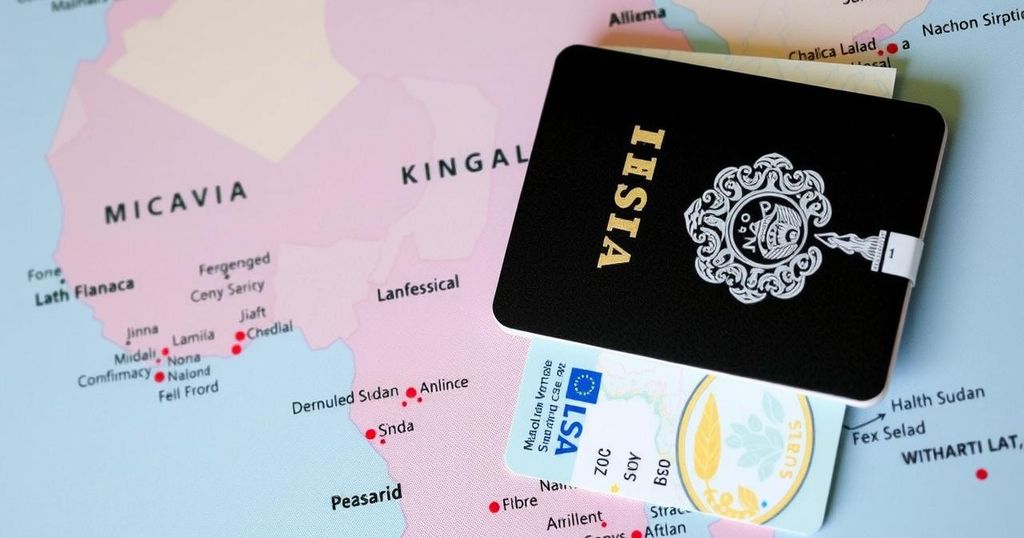The US Department of State has imposed visa restrictions on individuals responsible for the South Sudan conflict, citing ongoing governance failures and the postponed elections. Despite progress discussions, the transitional government has not met its peace agreement commitments, contributing to a severe humanitarian crisis in the nation.
On December 19, 2024, the United States Department of State announced the implementation of visa restrictions on individuals implicated in the ongoing conflict in South Sudan. The announcement highlights the South Sudanese leadership’s persistent failure to address essential governance issues, such as corruption, human rights violations, and peace maintenance. Additionally, the US conveyed disappointment regarding the postponement of the country’s first elections, now rescheduled for 2026, further straining the transitional government’s credibility.
These visa restrictions are part of a broader US policy introduced in 2019, targeting individuals who undermine efforts toward sustainable peace in South Sudan. This marks the third phase of actions executed under a specific section of the Immigration and Nationality Act. Presently, South Sudan faces one of the most severe humanitarian crises globally, with millions in dire need due to ongoing conflict and exacerbated by natural disasters and extreme poverty.
The State Department reaffirmed concerns over the South Sudan transitional government’s inadequate adherence to the commitments outlined in the 2018 peace agreement, which mandates the establishment of conditions conducive to effective humanitarian assistance. The government’s inability to fulfill its obligations under this agreement raises questions about its sincerity and capacity to foster lasting peace in the region. In a prior statement, the US had also imposed visa restrictions on South Sudanese officials obstructing humanitarian aid, including through taxation on aid shipments.
The decision by the United States to impose visa restrictions stems from decades-long conflict in South Sudan, which gained independence from Sudan in 2011. Despite the formation of a transitional government and the signing of a peace agreement in 2018 aimed at ending years of civil war, the country continues to grapple with governance failures, widespread corruption, human rights abuses, and a humanitarian crisis affecting millions. The 2018 peace agreement laid the groundwork for a transition towards stability, yet its implementation has been fraught with delays and unfulfilled promises by the leadership. The US has maintained a policy focus on supporting peace initiatives and addressing humanitarian needs in South Sudan while holding leadership accountable for their governance failures.
In summary, the United States’ recent visa restrictions on individuals involved in the ongoing South Sudan conflict underscore its commitment to promoting accountability and sustainable peace in the region. The ongoing humanitarian crisis and governmental failures to uphold peace agreements highlight significant challenges facing the nation. With elections postponed and the transitional government’s effectiveness in question, the US continues to advocate for adherence to international obligations and improvements in humanitarian conditions for the South Sudanese people.
Original Source: sudantribune.com






